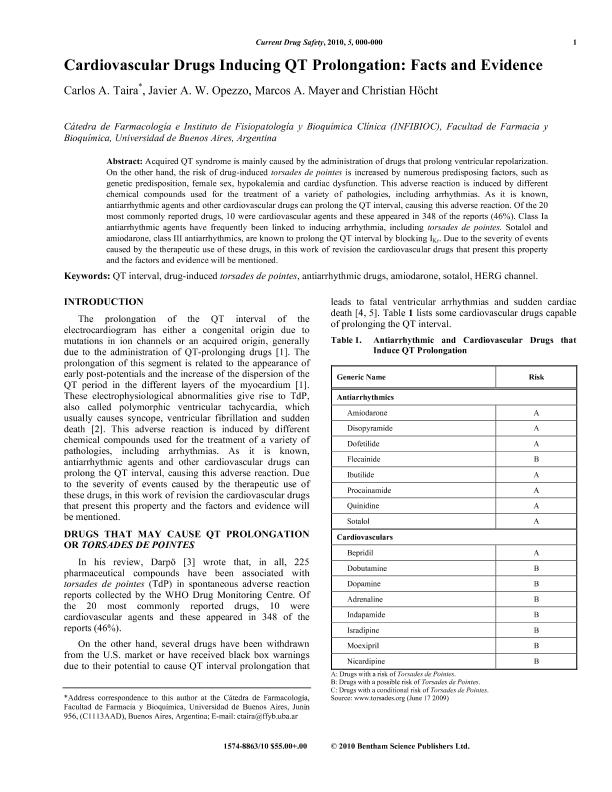Artículo
Cardiovascular drugs inducing QT prolongation: facts and evidence
Fecha de publicación:
01/2010
Editorial:
Bentham Science Publishers
Revista:
Current Drug Safety
ISSN:
1574-8863
e-ISSN:
2212-3911
Idioma:
Inglés
Tipo de recurso:
Artículo publicado
Clasificación temática:
Resumen
Acquired QT syndrome is mainly caused by the administration of drugs that prolong ventricular repolarization. On the other hand, the risk of drug-induced torsades de pointes is increased by numerous predisposing factors, such as genetic predisposition, female sex, hypokalemia and cardiac dysfunction. This adverse reaction is induced by different chemical compounds used for the treatment of a variety of pathologies, including arrhythmias. As it is known, antiarrhythmic agents and other cardiovascular drugs can prolong the QT interval, causing this adverse reaction. Of the 20 most commonly reported drugs, 10 were cardiovascular agents and these appeared in 348 of the reports (46%). Class Ia antiarrhythmic agents have frequently been linked to inducing arrhythmia, including torsades de pointes. Sotalol and amiodarone, class III antiarrhythmics, are known to prolong the QT interval by blocking IKr. Due to the severity of events caused by the therapeutic use of these drugs, in this work of revision the cardiovascular drugs that present this property and the factors and evidence will be mentioned.
Archivos asociados
Licencia
Identificadores
Colecciones
Articulos(OCA HOUSSAY)
Articulos de OFICINA DE COORDINACION ADMINISTRATIVA HOUSSAY
Articulos de OFICINA DE COORDINACION ADMINISTRATIVA HOUSSAY
Citación
Taira, Carlos Alberto; Opezzo, Javier A. W.; Mayer, Marcos Alejandro; Höcht, Christian; Cardiovascular drugs inducing QT prolongation: facts and evidence; Bentham Science Publishers; Current Drug Safety; 5; 1; 1-2010; 65-72
Compartir
Altmétricas




